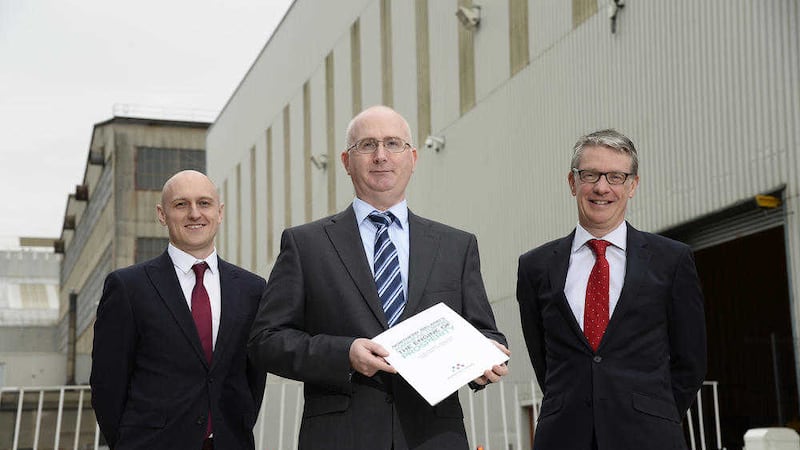THE 're-industrialisation' of the north's economy must headline the next priority list of the next Stormont Executive, lobby group Manufacturing NI insisted yesterday.
Launching a major new report on the sector - 'Northern Ireland's Manufacturing the Engine of Prosperity' - by Oxford Economics, the organisation's chief executive Stephen Kelly called on the next administration to use a "historic opportunity" to drive growth.
This could be done, he claimed, through the implementation of a manufacturing strategy, establishment of competitive energy prices, maintaining stable rates - and, simply, "a raising of ambition".
For its part, he said the industry body would be "single-minded" in ensuring that the "positive, robust nature" of the manufacturing sector was harnessed towards large scale job creation and economic investment in the next Assembly.
The detailed reports highlights how 214,000 direct and supported jobs - one in four of all jobs in the economy - are directly created and supported by the manufacturing sector which contributes a total of £9.9 billion of added value to the gross domestic product (GDP).
Other highlights include how manufacturing:
:: Is tied to £6 billion worth of exports - almost two thirds of all export sales;
:: Was responsible for £254 million in research and development in 2014 - accounting for over 60 per cent of total business investment;
:: Attracted £900 million in foreign direct investment between 2010 and 2014;
:: Boasts productivity running at £55,700 per job - 38 per cent higher than the Northern Ireland average
"Despite recent high profile problems, this report highlights the historic opportunity which the next Executive has to help create renewed economic prosperity," Mr Kelly said.
"We believe that it’s possible - and necessary - for the Executive to work with the manufacturing sector to increase its contribution to 20 per cent of GDP, narrowing the gap between north and south of the border.
"Through the implementation of a manufacturing strategy, the establishment of a target on competitive energy prices, continued stability on rates and a raising of ambition, the next Executive can create the conditions which will see this target met, transforming communities across Northern Ireland.
"It can lead a re-industrialisation of our economy".
Despite the high profile demise of some of the north's traditional manufacturers in recent months, Neil McCullough from Oxford Economics said the report had uncovered many reasons to be cheerful.
"What this analysis has uncovered is that a strong, vibrant and important manufacturing sector remains," he said.
"It directly provides a significant volume of highly productive jobs, meaning the sector is the second largest direct contributor to GDP."
In addition, for every manufacturing job in Northern Ireland, the report stated that 1.5 were supported elsewhere in the economy, contributing £2 billion in wages to its own staff and a further £2.2 billion through jobs supported outside the sector.








